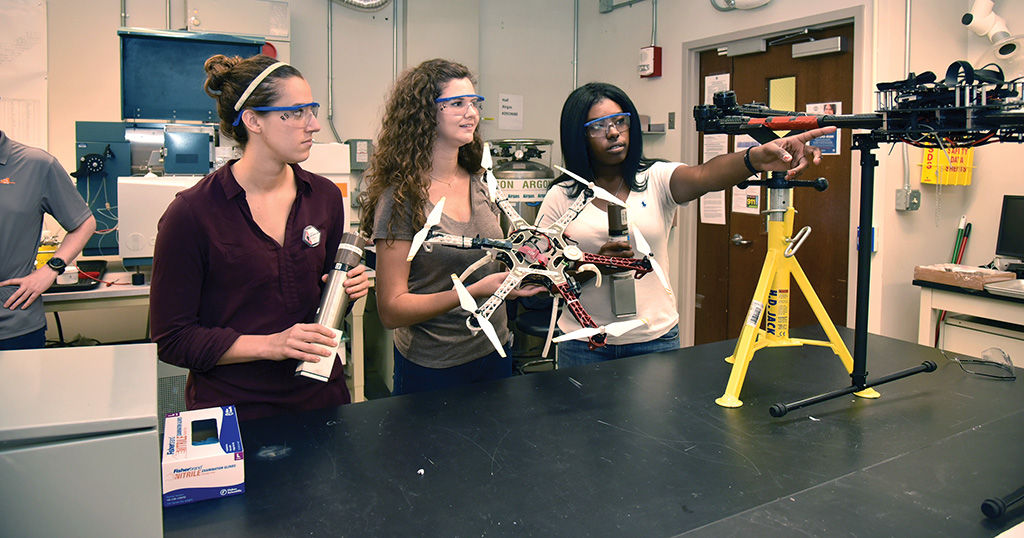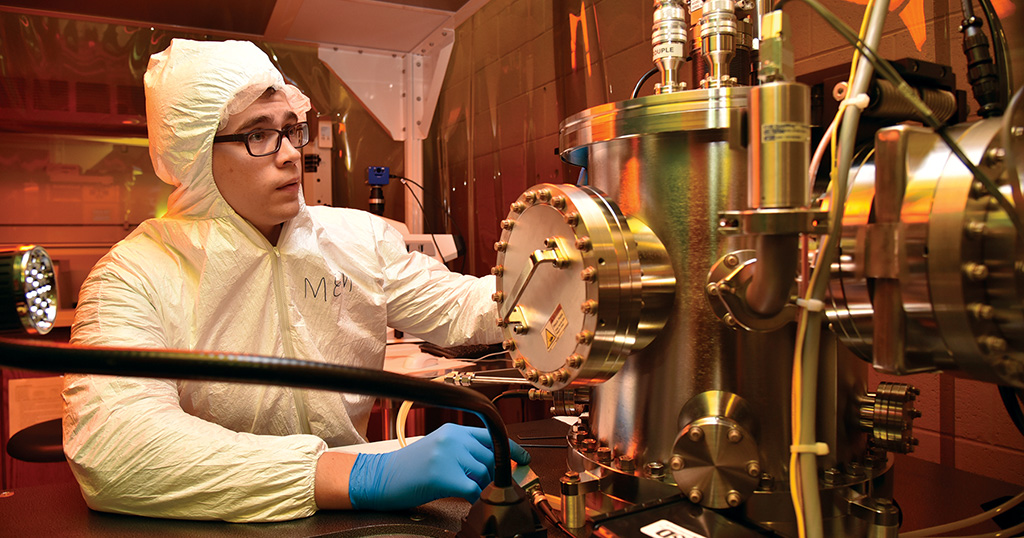The most visible example of nuclear engineering is the production of nuclear energy, which is sustainable, safe, and has no carbon footprint.
But nuclear engineering is so much more than that. In addition to nuclear power, nuclear engineers:
- Help the medical field diagnose and treat diseases as well as sterilize equipment;
- Identify and analyze materials such as pollutants;
- Provide an added level of security to transportation;
- Aid in the diagnostics and maintenance of structures and materials;
- Provide a more reliable, cost-effective power supply for use in space exploration.
In addition to the traditional degree program, we also offer a concentration in radiological engineering. Students can earn minors in: nuclear decommissioning & environmental management, reliability and maintainability, concepts of cybersecurity, and nuclear safety.
What Is the Faculty Like?
Our faculty includes two joint UT-ORNL Governor’s Chairs, several fellows of the American Nuclear Society, named professors, and icons in the fields of nuclear materials, energy, and security.
—Irfan Ibrahim, Class of 2020

Why Nuclear Engineering
—Jillian Newmyer, Class of 2019
Near the Top
Over the last few years we have been consistently ranked among the top 7 public nuclear engineering departments in the United States.
Personal Interaction
Our undergraduate student-to-faculty ratio is 12:1, which ensures our students have better access to professors and learning experiences and will be a part of a close-knit community.
Newest Building
Beginning fall 2021, the Zeanah Engineering Complex is home to the Department of Nuclear Engineering. The brand new space hosts state-of-the-art research labs and classrooms.
Facilities
Our department works in some of the most high-tech spaces at UT and ORNL, including the Joint Institute for Advanced Materials, ORNL’s Scintillation Materials Research Center, and UT’s Institute for Nuclear Security.
Student Organizations
The American Nuclear Society, Women in Nuclear, the Health Physics Society, and the Institute of Nuclear Materials Management are the main department-specific groups you can join for fellowship, learning, and support.
Other Opportunities
Our students often round out their educational experience through classes in the areas of materials science, physics, mathematics, business administration, and others.
Co-Ops and Internships
Students often work in areas of power production at nuclear power plants, but they also often find themselves in nuclear reactor and/or system design, nuclear waste management, nuclear site decommissioning, and plant reliability and maintainability. NE students have performed work assignments with Oak Ridge National Laboratory, Southern Nuclear Company, Tennessee Valley Authority, and Toshiba-Westinghouse to name a few.
Career Readiness
The diversity of paths you can take through nuclear engineering at UT are mirrored by the places you can find employment. We have a broad range of placements, whether your focus is energy—Dominion Energy, Southern Nuclear Company, TVA, Duke Power; industry—General Electric, Honeywell, Emerson, Westinghouse; or health, which has seen our graduates placed far and wide across the country.
If you want to take your research further, we are just 30 minutes from Y-12, Oak Ridge National Laboratory, and several other major laboratories. Our graduates often find employment with these facilities.
No matter your direction, your classes, or projects, our instructors will help you obtain your goal.
Learn More About UTNE
We’d love for you visit our campus. Scheduling a tour is the best way to get a feel for who we are and what we do; to meet our faculty, staff, and students; and see our labs for yourself. For more information, please visit us on Facebook, X (formerly Twitter), or email utne@utk.edu.
Salary Outlook
Recent employment surveys have shown that the average starting salary for a nuclear engineer is around $71,000.
